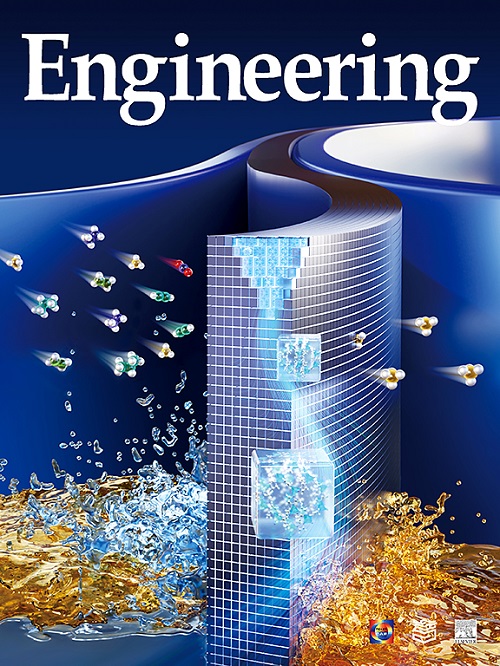迈向智能绿色乙烯制造:基于人工智能的蒸汽热裂解过程多目标动态优化框架
IF 11.6
1区 工程技术
Q1 ENGINEERING, MULTIDISCIPLINARY
引用次数: 0
摘要
随着对环境问题的日益关注,乙烯制造正从单纯关注经济效益转向对环境影响的额外考虑。乙烯生产中热裂解炉的运行不仅决定了乙烯装置的盈利能力,而且还决定了其碳排放量。对热裂解炉进行多目标优化,平衡效益与环境影响是实现绿色乙烯生产的有效途径,但由于涉及复杂的动态过程,计算量较大。在这项工作中,应用人工智能(AI)开发了一种基于物理一致机器学习(PCML)的新型混合模型。这种混合模型不仅减少了计算量,而且保持了模型的可解释性和可扩展性。该混合模型将多目标动态优化的计算量减少到77 s。优化结果表明,随着焦炭的形成动态调整操作变量可以有效地提高效益和减少CO2排放。此外,本研究的结果表明,牺牲28.97%的年利润,可以显著减少42.89%的年二氧化碳排放量。本研究的主要发现强调了通过建模和优化方法基于人工智能的绿色乙烯制造的巨大潜力。该研究对行业从业者和政策制定者具有重要意义。本文章由计算机程序翻译,如有差异,请以英文原文为准。
Toward Intelligent and Green Ethylene Manufacturing: An AI-Based Multi-Objective Dynamic Optimization Framework for the Steam Thermal Cracking Process
With growing concerns over environmental issues, ethylene manufacturing is shifting from a sole focus on economic benefits to an additional consideration of environmental impacts. The operation of the thermal cracking furnace in ethylene manufacturing determines not only the profitability of an ethylene plant but also the carbon emissions it releases. While multi-objective optimization of the thermal cracking furnace to balance profit with environmental impact is an effective solution to achieve green ethylene manufacturing, it carries a high computational demand due to the complex dynamic processes involved. In this work, artificial intelligence (AI) is applied to develop a novel hybrid model based on physically consistent machine learning (PCML). This hybrid model not only reduces the computational demand but also retains the interpretability and scalability of the model. With this hybrid model, the computational demand of the multi-objective dynamic optimization is reduced to 77 s. The optimization results show that dynamically adjusting the operating variables with coke formation can effectively improve profit and reduce CO2 emissions. In addition, the results from this study indicate that sacrificing 28.97% of the annual profit can significantly reduce the annual CO2 emissions by 42.89%. The key findings of this study highlight the great potential for green ethylene manufacturing based on AI through modeling and optimization approaches. This study will be important for industrial practitioners and policy-makers.
求助全文
通过发布文献求助,成功后即可免费获取论文全文。
去求助
来源期刊

Engineering
Environmental Science-Environmental Engineering
自引率
1.60%
发文量
335
审稿时长
35 days
期刊介绍:
Engineering, an international open-access journal initiated by the Chinese Academy of Engineering (CAE) in 2015, serves as a distinguished platform for disseminating cutting-edge advancements in engineering R&D, sharing major research outputs, and highlighting key achievements worldwide. The journal's objectives encompass reporting progress in engineering science, fostering discussions on hot topics, addressing areas of interest, challenges, and prospects in engineering development, while considering human and environmental well-being and ethics in engineering. It aims to inspire breakthroughs and innovations with profound economic and social significance, propelling them to advanced international standards and transforming them into a new productive force. Ultimately, this endeavor seeks to bring about positive changes globally, benefit humanity, and shape a new future.
 求助内容:
求助内容: 应助结果提醒方式:
应助结果提醒方式:


